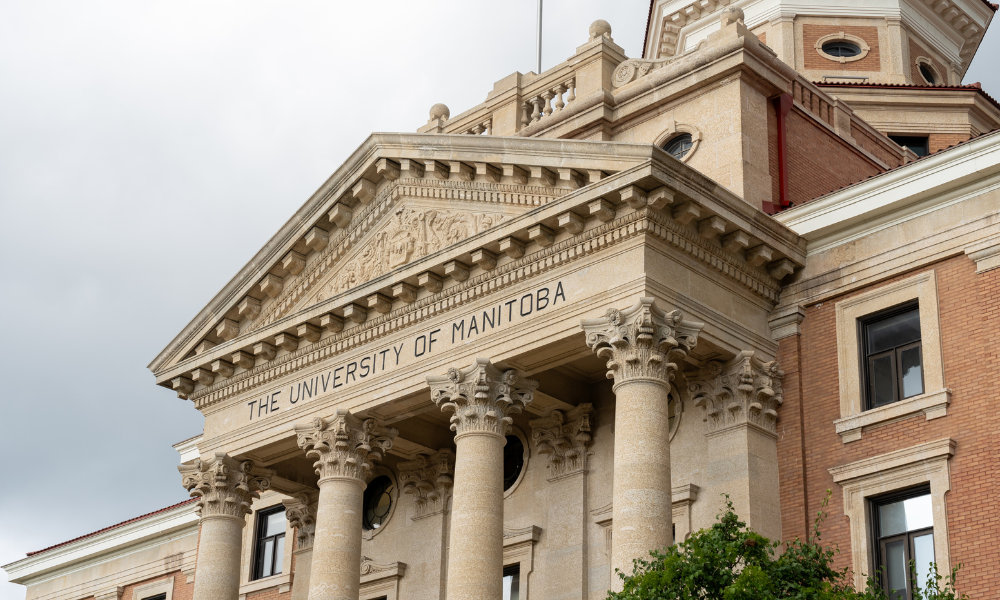
Accused has ‘breached his duty of integrity and has therefore committed professional misconduct and/or engaged in conduct unbecoming a lawyer,’ says court

A former dean of the Faculty of Law at the University of Manitoba has been found guilty of misappropriating institutional funds and ordered to repay nearly $700,000 in a case that has raised serious questions about oversight and financial governance in academic institutions.
Jonathan Lee Black-Branch—who served as Dean of Law from 2016 to 2020—must pay $679,269.98 in restitution to the university, following a ruling from a disciplinary panel of the Court of King’s Bench of Manitoba. The panel found he had “on many occasions breached his duty of integrity and has therefore committed professional misconduct and/or engaged in conduct unbecoming a lawyer.”
The misconduct, which led to his termination in July 2020, was uncovered following an internal investigation by the university’s Audit Services Department. The university filed a civil lawsuit in August 2024, alleging Black-Branch “intentionally and maliciously perpetrated fraud” and sought to “conceal [his actions] through fraud, deceit, or fraudulent misrepresentation.”
Previously, two school board divisions in Saskatchewan terminated two workers after their alleged involvement in crimes that led to the divisions losing more than $22,000.
The panel determined that Black-Branch repeatedly violated ethical standards, including the improper use of more than $500,000 in university and endowment funds. Among the most the findings: $472,282 from the Desautels Endowment Fund was used to finance personal professional development courses at Harvard and Yale, despite those expenditures being outside the fund’s mandate.
The disciplinary decision stated that Black-Branch authorised these payments himself, without disclosure or approval from senior university leadership. He also filed claims for more than 200 meals at the exclusive Manitoba Club in Winnipeg. At least 141 of those meals were falsely submitted as business meetings, despite evidence that he dined alone. In 19 instances, he claimed to have hosted specific individuals who later confirmed they had not attended. “The member falsely claimed to have been entertaining guests… which was false,” the panel noted.
Black-Branch also used institutional funds to pay for membership fees at the Manitoba Club and Oxford and Cambridge Club, according to CTV News.
Further, he submitted 62 claims for meals at a local games café, citing research interviews as the purpose. However, receipts and testimony showed he typically dined alone. After the validity of those expenses was questioned, he ceased submitting claims from that establishment.
The panel also cited a $75,000 donation that Black-Branch directed from the university to the International Society of Law and Nuclear Disarmament—an organisation he founded and chaired—without disclosing his conflict of interest. The funds were processed exclusively on his authority.
Despite being given notice of the hearings and the opportunity to attend remotely from the United Kingdom, Black-Branch failed to participate in any proceedings or submit a statement of defence. He made several last-minute adjournment requests citing medical reasons, which were rejected due to insufficient documentation.
“This is the behaviour of a person who was clearly attempting to avoid detection for improper spending,” the panel concluded. “The allegations in this count in the Citation are proved, and amount to a breach of integrity.”
He has since been disbarred by the Law Society of Manitoba. CTV News reported that Black-Branch's current whereabouts are uncertain. While his last known address was in Oxford, U.K., records indicate he may now reside in Switzerland.
Following the Black-Branch case, the University of Manitoba, has implemented several preventive measures to strengthen financial oversight and mitigate the risk of future misconduct.
These include a new university policy and procedure and a course on financial stewardship and ethical conduct, according to CTV News.
The new training program is mandatory for deans, the university statement told the publication. Dean expenses are also analyzed on a quarterly basis, according to the report.
"You can never eliminate [fraud], but you can certainly minimize it significantly,” David Milosevic, managing partner at Milosevic and Associates, said in a previous Human Resources Director Canada story.